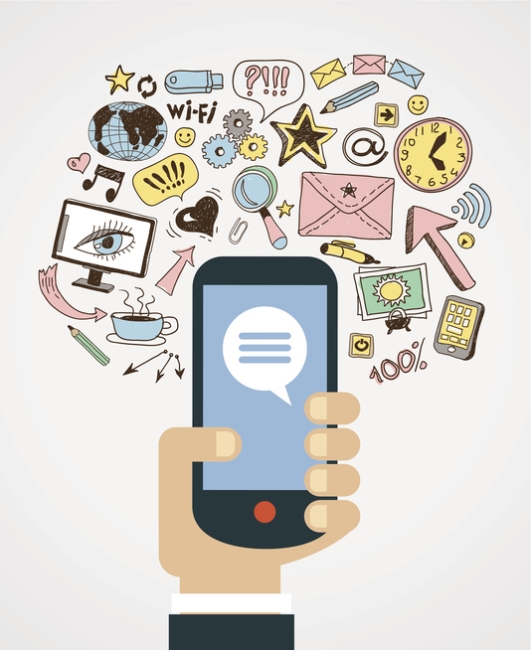You have /5 articles left.
Sign up for a free account or log in.

Istock/Ellagrin
Thank you for reading beyond the headline. That is no small task these days, as many of us, I have read, suffer from information overload. You have already, no doubt, chalked up many flight miles in cyberspace and have seen colleagues, public figures and others who steadily ascend while others crash and burn. I do not think any particular group within academe is exempt.
Whether an implosion occurs while social networking, looking for work, or in the comment queue of a news story, fingers may be flying, tensions mounting and thoughts spinning. Writers spar like swordsmen, eager to deflate their opponent’s ego and/or logic.
There is a problem, though. No one really wins in cyberspace. A bit like a public pool in summer, there is always going to be a little too much noise or splash, someone near or in your space, all interspersed by an eerie calm at off hours.
And there is another problem: Nothing and no one is perfect in cyberspace. Mistakes, missteps and misunderstandings are inevitable.
But if you are going to venture further -- or pull back a bit -- I have compiled suggestions to consider. “No risk, no gain,” some say. But with no real safety net on the Internet, we must create our own precautions. (Please add yours at the end of this column.)
Slow down. On phones, tablets and laptops, we quickly browse for content -- hotel rates, flight times, weather reports, headlines -- for information acquisition. Quick, quicker, quickest. What used to take 10 days of searching can now be achieved in 10 minutes -- sometimes even 10 seconds. That is magical, but that brand of magic is not necessarily effective for human relationships.
When we are net-working (hyphen intended), reading and writing may be rushed. These interdependent processes accelerate, exceeding our own, and our readers’, processing time. No one wants to be in a fevered rush when considering serious issues in our fields, our lives and our world. Read like crazy, write like the wind -- to what end?
What about time to engage? When I write comments on student papers, I urge class members to take comments to a quiet spot and reflect. By contrast, have you ever been scolded, admonished or wrongly accused online, and it was far worse to see those cutting words flash in your face, like a wayward firecracker? You were blindsided, and that triggers adrenaline.
Despite commercials that show relationships gelling in seconds with the latest gadget, relationship can be “messy,” as Sherry Turkle puts it so well in her TED talk and in books like Alone, Together: Why We Expect More from Technology and Less from Each Other. Because of human complexity and the intensity of emotions, I believe we need to err on the side of care.
Tone that tone. Terms like “Netiquette” seemed like the answer in days gone by when, as a listserv manager, I posted “rules.” I was astounded that so many people were crass when “be kind” was one of the rules. Isn’t “be kind” quite obvious? No, it is not. We are all different, raised in different places and households, and with different temperaments. Your “honest talk” is my in-your-face, plain rude.
With faceless, nameless listeners in the void of cyberspace, we can easily slip from lowered inhibition to dancing drunk with a lampshade on our head. Or perhaps we veer toward the prophetic, sassy, or even profane. I saw a re-tweet recently that jarred me – a staid person passing on choice words of someone else. Those are steep risks, ignoring tone optimal for some audiences.
Tone shifts complicate life on the Net. And online or on ground, many of us can recall an experience with a difficult text, when grasping or intuiting an author’s voice and intent eluded us. If we were lucky we had a guide -- perhaps a parent, sibling or teacher -- to help us so we had some hope of understanding.
Modulation and interpretation of tone takes discernment; adult comedy club humor will not work on your blog.
Know and limit your audience. When it comes to individual self-disclosure, the worlds of private and public seem forever changed. For some, self-control seems archaic. Selecting our chosen readers or listeners becomes exponentially more important.
I have been in a private group that “accidentally” (due to coding error) had its archives temporarily go public. I have also been in a private group where disclosures were so disturbing, several felt they needed an outsider to intervene.
Emotion regulation, for some people, is off the table when we are one-stop-publishers -- and that trend has been on display on shock-talk, reality TV, on the road and in the news. The out-of-control emotion is so often rage.
On the one hand, the internet offers the chance for new support, connections, even hope. On the other, you should consider who your audience is -- both its limitations and its vastness.
Create your own pop-up. I know several of my personal vulnerabilities. My pop-up says: “Maria, edit,” so redundancies can be reduced. In one group online, I received various “look at the sunny side” admonitions and even a blistering character analysis. (Wonderful touch, delivered by email.) Ouch. So, another pop-up could be: “Only reveal sadness to those able to process.”
You might want to create your own pop-up, too. You choose this, or enlist a trusted mentor or friend, whose insight you will consider. Like a wise message from the Oracle, your pop-up may save the day -- and your nerves. For example:
Don’t (your pop-up reminder): Go for the jugular.
Do: Go at 70 percent of your wrath.
Don’t: Write first and think later.
Do: Put on the brakes and consider fallout.
Show your best self, no matter what. Freedom of speech, and academic freedom, does not mean we descend to the lowest common denominator without consequence. We have seen what happens when a sincere message is intercepted and removed from context. And we have witnessed inexact phrasing vilified with misunderstanding and blame. Collectively, we have also seen cloddish, clumsy, ill-conceived, even hateful messages -- perhaps worrying if they would morph into destructive action.
And if our own character has been attacked, we may feel as if pursued by a posse in cyberspace -- even though we are innocent.
Rather than engage with more fury, force, passion, rage, we must consider the alternatives. Perhaps nimbleness and nuance are most lacking on the Net -- not brute force.








